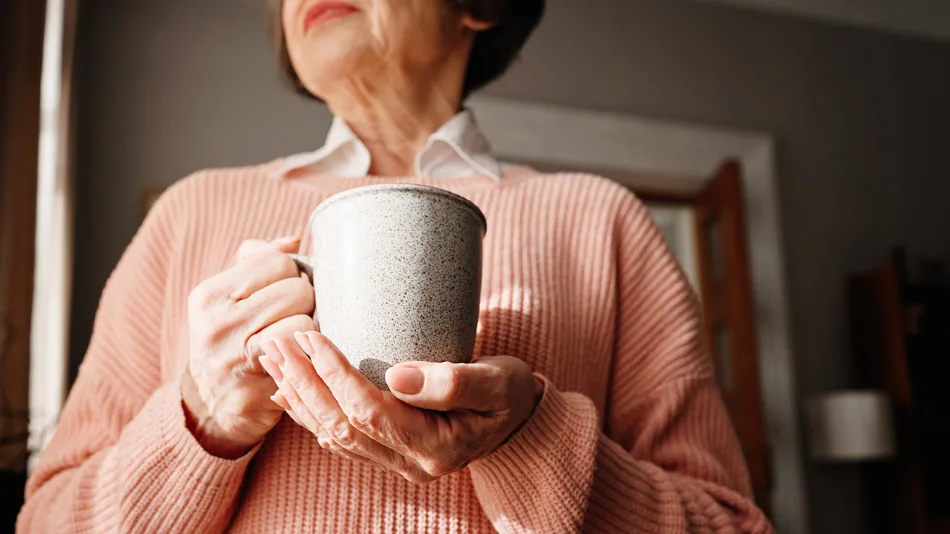From heating bills to hospital trips, costs across Dorset are leaving many isolated and quiet poverty is growing, warns Jon Sloper

While most of us are awaiting the forthcoming budget with some trepidation, many in Dorset will be actively dreading it: fearing anything that means more money disappearing.
It certainly feels as though we’re all paying more and more for less, whether it’s the horrendously high water bill or creeping shrinkflation in shops. Older people tend to be disproportionately affected by the rising cost of living.
In 2023, more than 200,000 pensioners in Dorset received a winter fuel payment and the cost of living allowance. With the Government’s new ruling on winter fuel entitlements, that number has fallen to just 20,000 people this winter.
The NHS in Dorset has been using its data to identify those people at most risk of illnesses – they estimate 44,000 people could become ‘financially vulnerable’ over the coming winter months.
Challenges in the community
Last year, Jon Sloper, chief executive of Help and Kindness, was part of a team reviewing data with colleagues from across health and social care. He says the work exposed major gaps in how services connect and communicate: ‘For many people, it’s hard to find what you need when you need it. There are also gaps within the public sector – individual organisations often don’t know what others are doing. When someone leaves a role, much of the local knowledge goes with them.’
Jon says there are still big gaps in communication between services. ‘The data revealed thousands at risk from the cold, especially those with health conditions and shrinking incomes. With the reduction in winter fuel allowance, we looked at who fell into that group and whether they were already receiving support.’
People with a chronic condition are vulnerable to drops in temperature: the mercury only needs to drop 4º to significantly affect their health and potentially require an emergency admission to hospital.
Jon continued: ‘Having found our at-risk group, we involved local authority and health colleagues and asked whether these people were already receiving support – perhaps living in residential care. Or were they living independently, and potentially struggling with additional costs?’
As the GPs had access to the confidential patient data, they reviewed their lists to see whether potentially vulnerable people had received a check-up recently, and if their medications were up to date. Some were contacted individually and in other cases, open health and wellbeing events were held. In addition to a health check, financial advice around preparing for winter was available. Jon says: ‘We wanted them to think about how they would stay warm, and to get in touch with their GP earlier. We knew where there were small pockets of people across Dorset so we worked to reach those people via parish magazines to ask them about winter readiness. We saw a reduction in people attending GP surgeries and an increase in people applying for pension credit, which we encourage: it is the gateway for other benefits.’
Help and Kindness liaised with Age UK and the county’s library services, which helped people with applications, and also with families and carers, advising them on support. Increasingly, Jon is receiving requests for help from family members who want someone to check on a relative – the calls come in from all over the world. Last winter’s work revealed just how fragile life has become for many Dorset residents.

Jon says the team’s work also exposed wider critical issues. ‘The loneliness is huge. Every week we hear from people who haven’t seen anyone for a week and just want someone to call in. We try to join those up, suggesting places people can go to, like a lunch club. We have access to more than 13,000 events and organisations across Dorset.
‘But the other issue is transport. For many, unless it is literally on their doorstep, they can’t get to it. We try to find local volunteers or community schemes, but transport is one of Dorset’s biggest challenges.’
Poverty, Jon says, is not just a vast issue, it’s a slow burn. ‘There has been a phenomenal rise in the cost of living, and many in Dorset are on fixed incomes. Their overheads are going through the roof, and their money isn’t keeping pace. On top of which, there are the challenges of a boiler that needs fixing or a fridge that breaks … For those reliant on medication, losing a fridge becomes a crisis. And there are no savings left … People don’t have savings any more. They use them for buying food and paying the electric.
‘The poverty issue is everywhere. And it’s not just older people. It’s households with double incomes, people working in care – it’s everywhere.’
Issues in rural Dorset
Living in rural areas of Dorset brings extra pressures. In the middle and north of the county, Jon says, gaps in mental health support and transport leave many isolated. ‘There isn’t a single set of resources available everywhere. Wherever you go in Dorset there’s a different set of challenges and a different set of solutions. And different gaps.
‘There have been huge gaps in mental health support in North Dorset, though it’s starting to improve. Transport in North Dorset is a huge issue and it really affects access to health services – people just can’t get to them. We have many conversations about community transport: there won’t be a major change in public transport infrastructure, so we’re looking at alternatives.
‘Much of rural Dorset is a food desert. From north of Dorchester out to Yetminster and up the Piddle Valley there are a limited number of village stores with no supermarkets. And you can’t easily get to a supermarket from any of those places: if you can’t drive to a supermarket the cost of food can be more expensive.’
He believes Dorset could make better use of existing resources.
‘For example, school transport could be used to support carers in the middle of the day. We often don’t make the most of the resources we have. People struggle to get to hospital appointments in Bournemouth and Poole: it’s £50 for a taxi, one way, from Bridport to Dorchester! How are people supposed to afford that, especially when they are sick?’
Each call for help, Jon says, reveals how complex people’s lives have become. ‘One problem often turns into nine once you start listening.’
His message is simple: community awareness matters. ‘There’s so much quiet need,’ he says. Most of the time, help is out there – the challenge is making sure people know it exists.’
As winter approaches, that awareness – a neighbourly check-in, a shared lift, a simple hello – might be the smallest act that makes the biggest difference.
Help and Kindness maintain a vast directory of services and grants – if you belong to an organisation that can lend a hand or fund something, please let the team know so they can continue to join the dots on services in Dorset.
helpandkindness.co.uk


